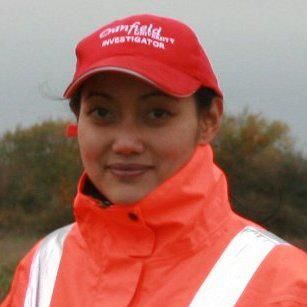ITB Bhimasena Digjaya Team Won the 2nd Place at Flight Controller Development KRTI

"Flight controller is a computer system that is responsible for monitoring and controlling the movement of unmanned aerial vehicles. There are two aspects of this category, that is the hardware and its firmware," explained Ronggur (IF'19) as the leader of the team.
The firmware features that they presented are a development from last year's model, which includes manual flying mode, fly-by-wire, and auto. Using Arduino IDE and C++ programming language, the firmware that they designed is capable of supporting the Hardware in Loop (HITL) feature.
Filan (OS'20) said that this feature can help the user to simulate the flying experience in computer applications for educational needs and to preview new features before conducting field tests. "In addition to that we also integrated it with Raspberry Pi (RasPi) to add more functionality," he added. This Flight Controller which was named Vimana offers more advantages in the form of HITL and RasPi connection feature so that it can be used for research and can be adjusted to a different firmware.
The team also improved last year's hardware. Their hardware was based on the STM32 platform which has a port and is connected to RasPi, has circuit protection, and is equipped with IMU (Inertial Measurement Unit) features that include a barometer, compass, and planted microcontroller. "The dimension and weight of the flight controller were also minimized without discarding user-friendly interface," said Gotawa (EL'20).
The Bhimasena Digjaya team consisted of 17 members from various study programs and batches. They work and learn together in Aksantara ITB, a student organization that engaged in robotics. Thorough preparations were carried out for almost 7 months and were getting more and more intense until before the competition.
According to Gotawa, the hardest challenge is the need to master various things which are very different from what we learn in class. "In addition to that, the engineering process is not as easy as what is written in the book. More often than not problem suddenly appears, from the system that is suddenly doesn't work, damaged IC because the solder is too hot, wrong propeller installation thus the plane flew sideways, and many more," he said.
This competition lasts for 6 days and ended on Saturday (20/11/2021). All the participants presented their work using three methods, that is through document file, live presentation, and video. The team success can be attributed to the help of Dr. Yazdi Ibrahim Jenie, S.T., M.T., which provide them with assistance and help in the initial phase of the product.
Among them, only Ronggur has participated in the last year's KRTI competition. He hopes that at next year's competition, ITB can win first place. "KRTI is a perfect medium to train your engineering work. Hopefully, after participating in KRTI, we can improve our ability and bring Nusantara flying sky-high," said Gotawa who just experienced his first robotic competition.
In the final session of the interview, Gotawa said that commitment and seriousness are the main assets in winning a competition. The matter of winning or losing is not something that you need to think about when taking the first step. "Whether win or lose, our ability and mental will still be trained. In my opinion, that is the most important."
Reporter: Maharani Rachmawati Purnomo (Oceanography, 2020)
Translator: Favian Aldilla Rachmadi (Civil Engineering, 2019).

scan for download








